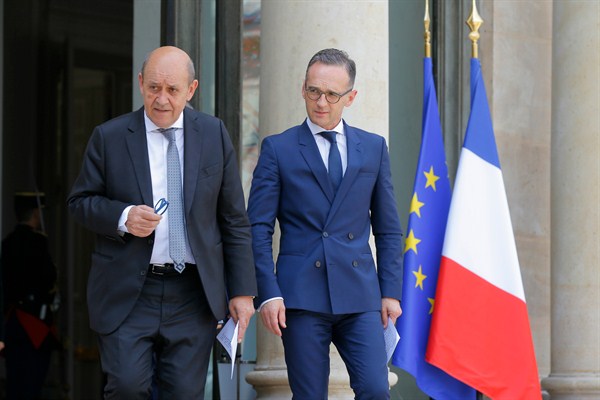The rules-based multilateral order is on the ropes, pummeled by absent leaders, dissatisfied powers, clashing values, novel challenges, skeptical publics and sclerotic institutions. To combat these trends, France and Germany have proposed an “Alliance for Multilateralism.” This flexible network would be open in principle to all independent nations committed to responding collectively to the world’s most daunting problems.
Realizing this ambitious vision will require persuading prospective members that the proposed alliance poses no threat to their national sovereignty, that it can contribute to pragmatic problem-solving and that it is not directed against any particular state or states. The alliance’s architects must also decide whether it will be a multilateral platform that is normatively “thick” or “thin,” meaning one that is grounded in shared political principles or focused simply on peaceful coexistence among states that disagree fundamentally on values.
The crisis of multilateralism has many roots. One is an abdication of global leadership by the United States, the leading custodian of world order since 1945. Another is a rapid redistribution of global power toward China, India and other emerging economies, each of which seeks, like Wilhelmine Germany, its “place in the sun.” These aspirations include greater weight and voice in major organs of global governance, including the United Nations, the World Bank and the International Monetary Fund.

